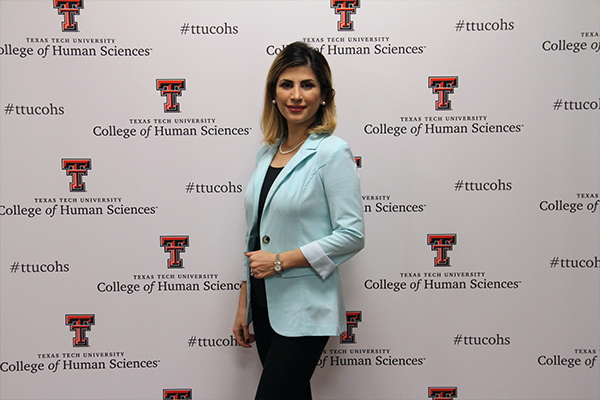DOD doctoral candidate receives grant from The Academy of Architecture for Health Foundation (AAHF) and the Emergency Medicine Foundation (EMF)
The grant supports research on relationships between the physical design of an emergency department and its operation.
Doctoral candidate in the College of Human Science's Interior and Environmental Design program Negin Houshiarian is the recipient of a 2016 grant from The Academy of Architecture for Health Foundation (AAHF) and the Emergency Medicine Foundation (EMF). The grant supports research on relationships between the physical design of an emergency department and its operation.

Negin was born and raised in Iran and moved to the United States to continue her education. She has a bachelor's degree in Architectural Engineering, a master's degree in Architecture, as well as a second master's degree in Interior Architecture.
Negin said she has always been passionate about architecture and interior design.
"From a very young age, I began looking for ways to make my environment a better place in which to live. I discovered Healthcare Design is an area of architecture and environmental design that has not been thoroughly developed. There are a lot of questions that require research to be answered, so I chose to pursue my Ph.D. in this field."
Negin's research measures the impact of how the physical design of an emergency department
can improve its operation. Negin said the study, which is based on her doctoral dissertation
topic and expands further research questions in the same field, will offer novel opportunities
to understand emergency department operation models.
"By studying the interaction of physical design and flow typologies, we emphasize
the need for solutions that account for both variables. In contrast to prior studies
which only analyze a single factor for a given emergency department, this study will
provide broad generalizability by examining different flow-design models."
Negin said she is very happy to be the recipient of this grant among many competitive and great participants. She said the success is a result of a team effort as she is only one member of a very strong team among the best architects and physicians who made this proposal successful.
"It is a great opportunity allowing me to expand my research interest area, and I am very happy and excited about the potential results. I believe this grant will help our team conduct research that will have a strong contribution to the body of knowledge in this field."
Negin said her time in the College of Human Sciences has prepared and enabled her to receive this grant.
"Three years of study in one of the best programs in the field of healthcare design, and learning under the supervision of exceptional professors led me to gain a deep insight into interior and environmental design and inspired me to do research in this field," Negin said.
Negin is appreciative the professors in the College of Human Sciences always encourage students to participate in competitions and conferences. She said it was her mentor, Dr. Debajyoti Pati, who informed and encouraged her to apply for the grant.
"I am truly grateful to all of my professors in the College of Human Sciences who helped me so much. Dr. Kristi Gaines taught me so much about theories and research in interior design, and Dr. Sharran Parkinson helped me conduct my literature review."
However, her mentor, Dr. Pati who played a special role in her research. Negin said, "Not only did he teach me how to conduct research, but he expanded my horizons in the best practices of healthcare design. I admire his logical and critical thinking. His immense knowledge and guidance helped me with my Ph.D. dissertation as well as with this grant proposal."
Negin said she has learned a lot during her time as a doctoral student beginning her first semester in the College of Human Sciences.
"Courses like Research Methods and Statistics were crucial in preparing me to conduct research, while other courses such as Design of Interior Environments for Physically and Mentally Challenged Populations, and Acute Care were very helpful in familiarizing me with different topics in the field of interior and environmental design. The challenging research process working toward my Ph.D. dissertation in particular prepared me to conduct outstanding research in the field of healthcare architecture."
Negin said she admires all of the opportunities she was given in the College of Human Sciences.
Negin will graduate in December of 2016. In addition to working on the grant, she is currently working as a designer at an architectural firm. She plans to pursue her career as an architect and healthcare designer by combining research and design to implement empirical research in the practice of design.
"I believe through research we can achieve a higher quality of space design."
College of Human Sciences
-
Address
College of Human Sciences, Texas Tech University, P.O. Box 41162, Lubbock, TX 79409-1162 -
Phone
(806) 742-3031 -
Email
hs.webmaster@ttu.edu
